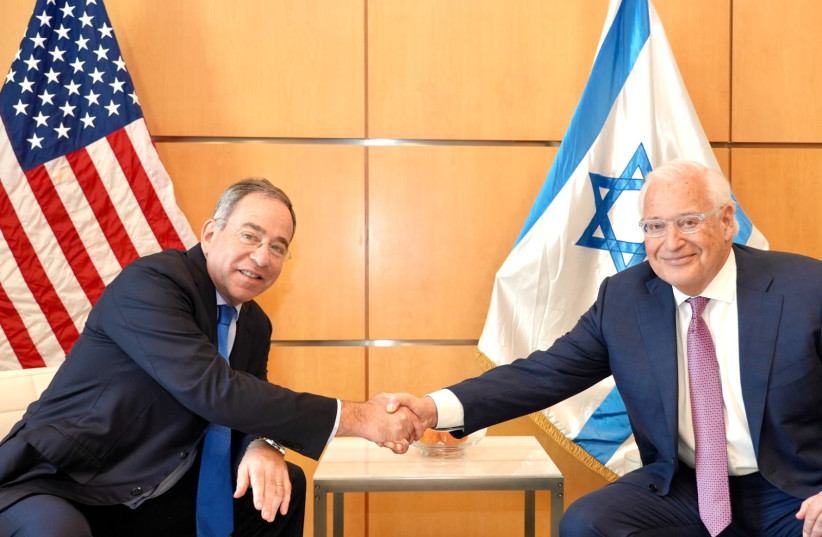American Jewish leaders need to deploy a different kind of hyperbole about Israel. It is time to put aside talk of the end of democracy, the onset of fascism, the deprivation of human rights and religious coercion. Instead, we can and therefore must express our complete confidence in the enduring quality of Israel’s vibrant democracy.
We can and therefore must speak with pride and joy of the country that is the fulfillment of the prayers and dreams of millennia; the lone beacon of freedom in a neighborhood of horrific repression; the modern miracle from which comes forth the Torah that nourishes our nation and technology that powers the world; the Jewish national homeland miraculously reborn on the smoldering remains of the Holocaust and committed to the security of every Jew in a still-hateful world.
The fractious debate over judicial reform in Israel currently pits advocates for the maintenance of the status quo against those who propose radical corrections to the current system. Both extreme positions are untenable and should be recognized for what they really are, as opening bids in a bruising legislative negotiation.
We can and therefore must express our complete confidence that the path ultimately chosen will strike a balance that reflects the democratic values that undergird the unbreakable bond between the United States and Israel; values that are on vivid display in this very debate.
Whatever our view on the proposed legal reforms and other issues and whether we choose to advocate for our positions, we are not well served by collecting signatures on letters that exaggerate our differences and sow self-fulfilling prophecies of gloom and doom about the future of Jewish and democratic Israel. And though some Israelis ask us American Jews to not be silent for the sake of Zion, for the sake of American Jewry, a bit more silence on our part will be helpful.

CAUTION IN Israel is warranted, as well. While those on both sides of Israel’s political divide must continue to advance their policy debates vigorously, they must recognize that on the sidelines of their political battlefield sit America’s Jews, watching carefully and deciding whether they will be able to identify with the outcome. To paraphrase Ahad Ha’am, more than American Jewry has maintained Israel, Israel has maintained American Jewry.
For the vast majority of Diaspora Jews, it is not Judaism but Israel, both concern for its safety and pride in its accomplishments, that has united and galvanized them as Jews and served as the most effective anchor of their Jewish identity. Preserving that sense of identity between American Jewry and Israel is a paramount responsibility that both Israeli and American Jewish leaders must have at the top of their minds because at this moment, that sense of identity is seriously at risk.
The perfect storm is brewing. As American Jewish identity weakens, Israel, as reflected in its representative government, is experiencing a political and religious rightward tilt. These are opposing trends that are unlikely to reverse themselves anytime soon and left unaddressed will undermine the identification of much of American Jewry with Israel. This problem is heightened on the Israeli side by the stridency of those in power and the exaggerated claims of the opposition. American Jewish leaders joining the political fray will only exacerbate the situation further.
American Jewry and its leaders should be doing quite the opposite, bringing to our dialogue about and with Israel the comity and understanding that characterize American Jewish life and the unconditional love that has been the lasting hallmark of our cherished relationship with our beloved Israel. “When God brought back the exiles of Zion, we were like dreamers – then were our mouths filled with laughter, our tongues with joy.”
The writer, a rabbi, serves as the executive vice president of the Orthodox Union.
